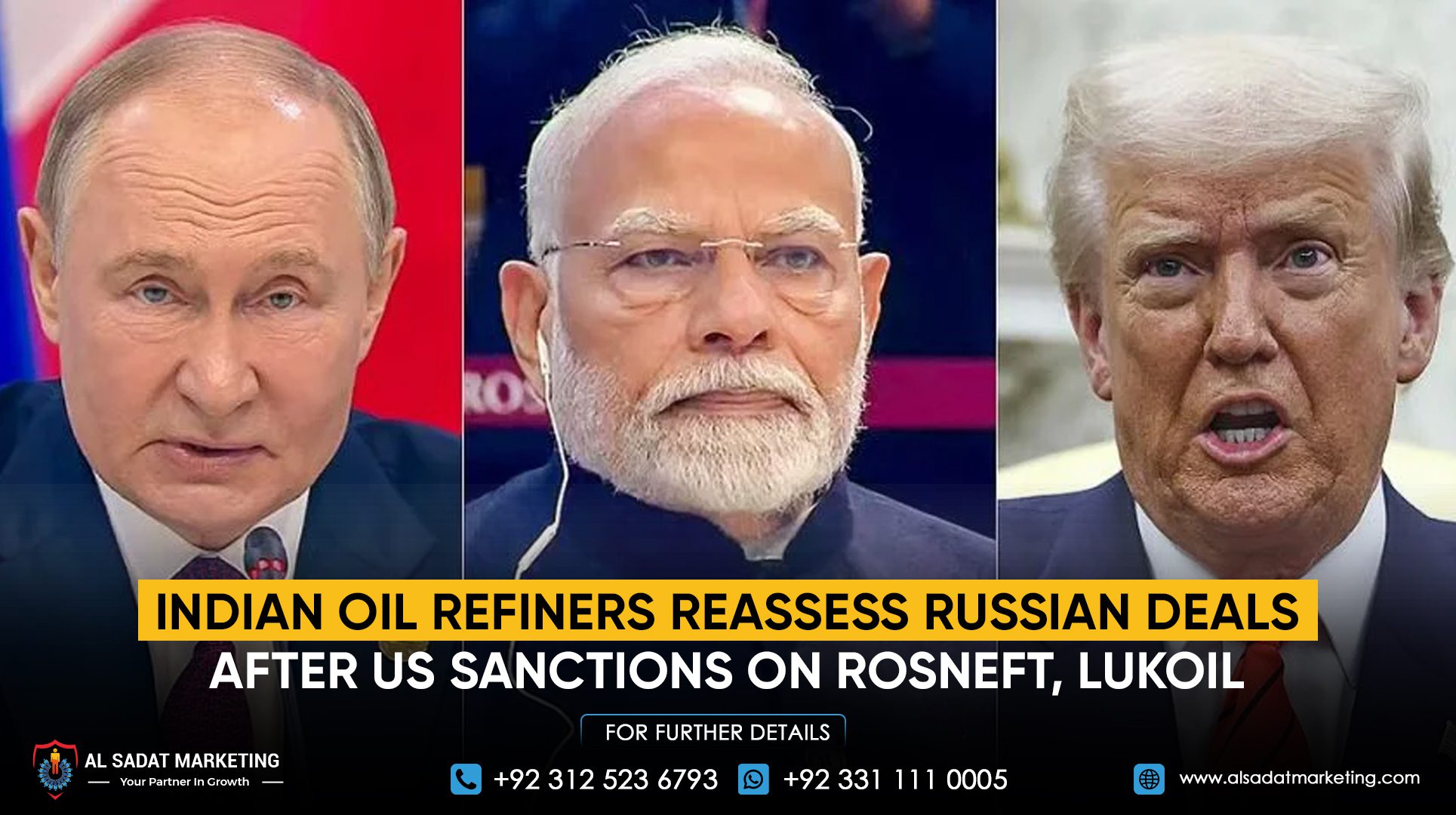India’s state-owned oil refiners are reviewing all Russian crude shipment documents to ensure no supplies come directly from Rosneft or Lukoil, after the United States imposed new sanctions on both companies.
The move follows U.S. President Donald Trump’s latest Ukraine-related sanctions targeting Moscow’s top oil producers, part of Washington’s broader effort to cut off funds supporting Russia’s war in Ukraine.
According to the U.S. Treasury Department, global companies have until November 21 to end any transactions with the sanctioned Russian firms.
Indian refiners begin compliance review
Major state-run refiners — Indian Oil Corporation (IOC), Bharat Petroleum (BPCL), Hindustan Petroleum (HPCL), and Mangalore Refinery (MRPL) — are now checking all bill of lading documents for upcoming shipments. The goal is to confirm that no crude is being sourced directly from Rosneft or Lukoil.
So far, none of the refiners have issued public statements on the review.
Oil prices react to sanctions
Global oil prices surged following the U.S. sanctions and India’s review announcement. Brent crude rose by 3.4% to $64.71 per barrel, while WTI increased by 3.6% to $60.59.
Analysts said the spike reflected market fears of supply tightening and uncertainty over future Russian exports.
“Trump’s sanctions target Russia’s main oil revenue streams,” said Priyanka Sachdeva, a senior analyst at Phillip Nova. “If India cuts back purchases, we could see demand shift toward U.S. crude.”
However, others, including Claudio Galimberti from Rystad Energy, cautioned that the impact might be short-lived, noting that past sanctions “failed to significantly hurt Russia’s oil exports.”
India’s Russian oil dependence
India became the largest buyer of Russian seaborne crude after Western nations imposed bans on Moscow’s oil following the 2022 invasion of Ukraine.
Between January and September 2025, India imported around 1.7 million barrels per day of Russian oil — mostly through private refiners like Reliance Industries and Nayara Energy, which purchase via intermediaries rather than directly from sanctioned suppliers.
Industry experts say this indirect purchasing method could help Indian refiners stay compliant while maintaining steady oil flows, even under the new sanctions framework.










